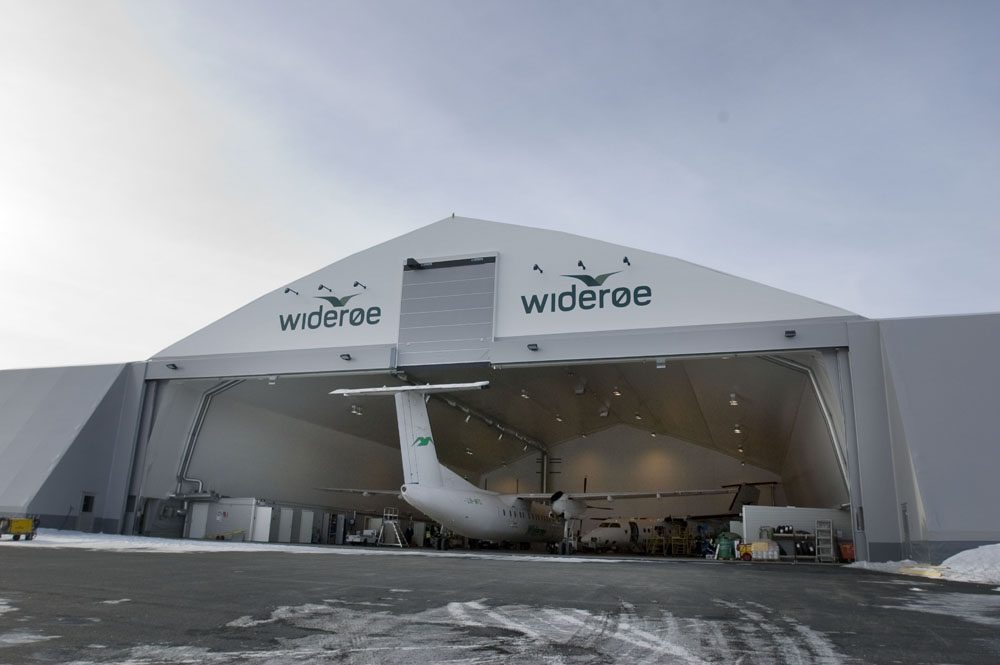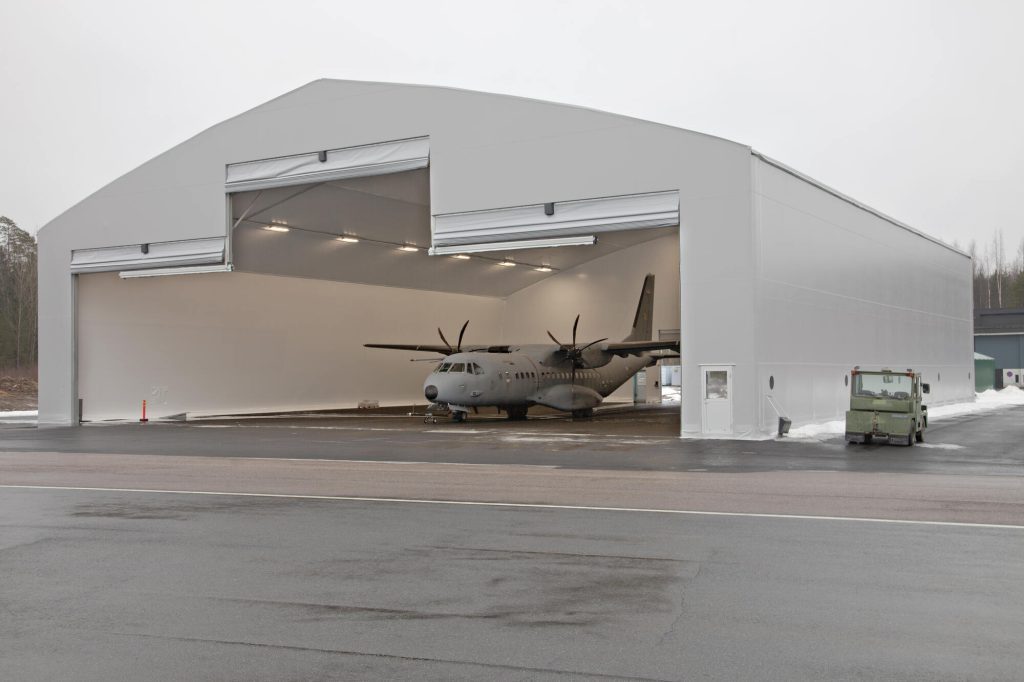6 Reasons Why You Should Invest in an Aircraft Hangar

Investing in an aircraft hangar offers critical benefits to aircraft owners and operators, from enhanced protection to significant savings. For those in the aviation industry, a dedicated hangar is a vital component in maintaining and preserving valuable assets, whether for personal, commercial, or operational use.
Here at Collinson Tensile, we have over 20 years of experience in providing tensile building solutions, and we’ve built a strong reputation as a contractor for aircraft hangars for airports, airlines, and aircraft maintenance companies. Within this guide, we’ll explain why an aircraft hangar is a worthwhile investment and how tensile fabric hangars, in particular, present a modern, cost-effective solution.
1. Enhanced Protection Against Weather and Environmental Factors
Aircraft are complex, high-value assets that require shelter from harsh environmental conditions. Exposure to UV rays, rain, snow, and temperature fluctuations accelerates wear and tear, leading to increased maintenance needs and a shorter aircraft lifespan. Hangars offer a controlled environment that mitigates these risks. With a properly insulated hangar, operators can reduce the impact of humidity and extreme temperatures, helping maintain the condition of both the exterior and interior components, including sensitive avionics.
For aircraft based in coastal or high-humidity regions, hangars provide vital protection against corrosion, a common issue that affects metal components and can lead to costly repairs. By investing in a dedicated hangar, you’re effectively safeguarding the long-term value of your aircraft.
2. Security and Reduced Risk of Damage or Theft
Aircraft hangars offer a secure storage solution, protecting your investment from potential vandalism or theft, which is particularly beneficial in busy or remote locations. Modern hangars can be equipped with advanced security systems, further reducing insurance costs by demonstrating a commitment to asset protection.
Hangars also eliminate the risk of “hangar rash,” minor damage caused by moving aircraft in shared spaces, which is a frequent issue in busy facilities where planes are stored close together. With a private or customised hangar, the risk of damage is significantly reduced.
3. Cost Savings on Maintenance and Insurance
The controlled environment of a hangar helps minimise the routine maintenance required to keep an aircraft airworthy. For instance, by reducing exposure to environmental stressors, aircraft stored in hangars require fewer paint touch-ups, less frequent cleaning, and slower ageing. This preservation can lower the ongoing maintenance costs associated with frequent upkeep and repairs.
Additionally, many insurance providers offer lower premiums for hangared aircraft. The reduced likelihood of weather-related damage, vandalism, or unauthorised access means insurers view hangared aircraft as a lower risk. This benefit alone can help offset some of the initial investment in a hangar, adding a layer of financial efficiency to the decision.
4. Efficient Operations and Easy Access for Maintenance
Aircraft hangars provide a dedicated space to perform routine maintenance, inspections, and repairs without weather-related disruptions. For commercial operators and private owners alike, efficient, uninterrupted maintenance schedules are essential to ensure safe and reliable flight operations. A hangar facilitates easy access to the aircraft and provides a stable environment for technicians to work on repairs, upgrades, or maintenance tasks that keep the aircraft in optimal condition.
Moreover, for those operating in harsh or unpredictable climates, a hangar eliminates downtime caused by weather delays, keeping schedules on track and maximising aircraft availability.
5. Advantages of Tensile Fabric Hangars
Among the various types of hangars available, tensile fabric hangars offer unique benefits that make them a standout choice for many aviation applications:
- Cost-Effective and Quick Construction: Tensile fabric hangars are generally more affordable to construct than traditional steel or concrete structures. With modular designs, they can be quickly assembled, allowing operators to minimise downtime and start using the facility faster.
- Energy Efficiency: Tensile fabric hangars are designed to allow natural light to penetrate the structure, reducing the need for artificial lighting and lowering operational energy costs. Additionally, the materials used in these hangars offer thermal efficiency, helping maintain a stable internal environment without heavy reliance on heating or cooling systems.
- Low Maintenance and Durability: Fabric hangars are built to withstand various weather conditions, from strong winds to heavy snowfall. The high-tensile fabric is corrosion-resistant, which is particularly beneficial in coastal or humid environments. This resilience makes tensile hangars a low-maintenance option, saving on long-term upkeep costs compared to traditional materials.
- Flexibility and Large Clear Spans: Collinson Tensile specialises in tensile fabric hangars that offer large, clear-span interiors, ideal for housing multiple aircraft or accommodating maintenance operations. The absence of interior columns creates unobstructed space, making it easier to move aircraft in and out and set up equipment as needed.

6. Future-Proof Investment with Customisation Options
Tensile fabric hangars are not only versatile but also highly customisable, making them suitable for a wide range of aviation needs. They can be outfitted with climate control, security systems, and other features specific to the owner’s requirements. As aviation technology evolves and environmental standards shift, tensile hangars offer the flexibility to adapt, allowing aircraft operators to stay ahead in a fast-changing industry.
Conclusion
Investing in an aircraft hangar is a sound decision that offers immediate and long-term benefits, from safeguarding your aircraft against environmental damage to reducing maintenance and insurance costs. Tensile fabric hangars, in particular, provide a modern, adaptable solution that combines durability with cost-effectiveness, ensuring your aircraft remains protected and operational. For airports, airlines, and other aviation companies looking to maximise the longevity and efficiency of their investment, a tensile fabric hangar from Collinson Tensile represents a strategic choice that balances innovation with practicality.
With over 20 years of expertise in the construction of industrial tensile structures, Collinson Tensile is equipped to design and build bespoke hangars that meet the unique needs of each client.
For more information or to discuss a project, contact Collinson Tensile to discover the benefits of a custom aircraft hangar tailored to your specifications.
